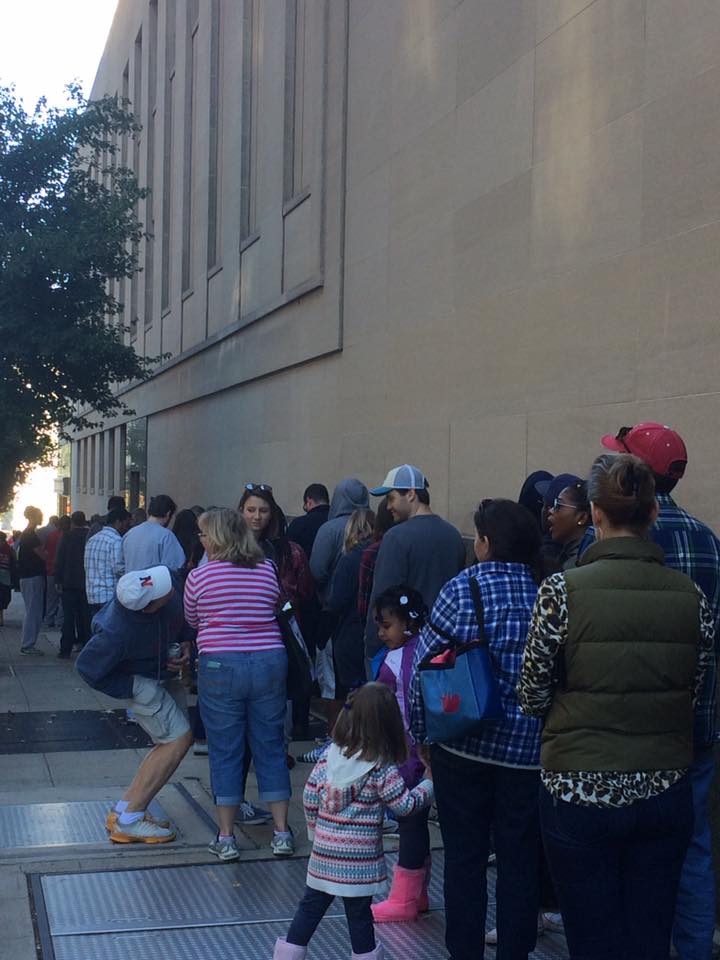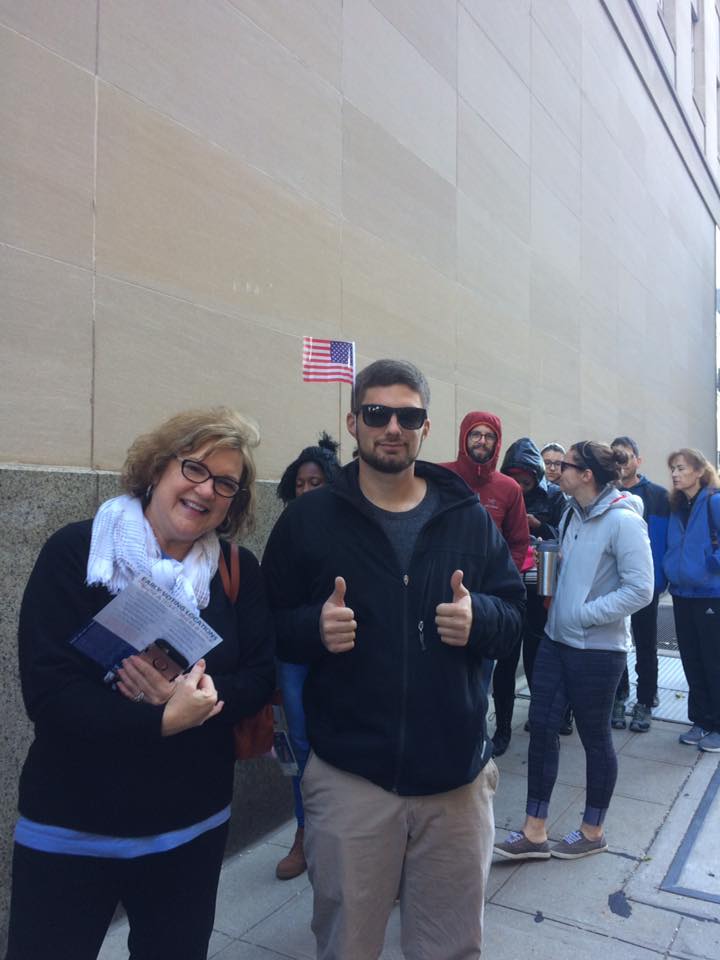
Raleigh, NC—Move over Matthew. There’s another super storm headed for North Carolina and many other states this week—thankfully, without the devastation delivered by last month’s hurricane.
This huge climate changer is a rare political El Nino, bigger than any we’ve ever witnessed before, poised to pack a powerful punch by its sheer size and force. It’s an historic combining of four mushrooming movements in the atmosphere, building for generations, timed to come down in torrents on Election Day.
Struggles against the suppression of Voting Rights for African Americans in the United States are nothing new, but when bound together with unprecedented attacks on women by a presidential candidate, laws targeting the LGBT community, and the muscular emergence of a coast-to-coast Latino political culture to fight bias at the ballot box, there is no known force in nature, or politics, which can hold back such a tsunami of change.
North Carolina is at the epicenter of this enormous El Nino, but it’s by no means alone. This Storm of the Centuries stretches from the deep Southwest of Arizona, Nevada, Colorado, Texas and New Mexico, to the furthest corners of Southern Florida and the I-4 corridor, where Latino voter turnout is not only breaking all records, but is so explosive and new that it’s escaping the data crunching of most traditional pollsters, including those, like Five Thirty Eight’s Nate Silver. (See The National Memo story http://www.nationalmemo.com/why-fivethirtyeights-prediction-model-may-be-inflating-trumps-chances/?utm_campaign=website).
On the ground in North Carolina for the past month, I’ve witnessed and talked with Blacks, Latinos, Women of all political affiliations and ages, members of the LGBT community, suburban independent voters, and a new generation of young white men who have banded together to tackle the future with more determination than the NC State Football team shows in tackling its’ competitors.
In court case after case, dating back to a sweeping federal court decision in July and culminating in a major victories just this week, Voting Rights advocates led by North Carolina’s NAACP’s Rev. Dr. William Barber II, have beat back every single effort of the state’s Republican Governor, legislature and GOP operatives to limit the rights of African Americans to vote. The battle for protecting Voting Rights, Rev. Barber argues is the “nation’s civil rights fight,” and it even has it’s own Rosa Parks: a 100-year old woman, Grace Bell Hardison, denied her cherished right to vote because of a tactic aimed at purging African Americans from the voter rolls.

Ms. Hardison challenged the voter suppression action and won, earning the praise of President Obama on several visits to the Tarheel state: “They targeted the wrong woman,” the President said. And, at 100 years old, a powerful, new symbol for the Voting Rights movement was born.
Simultaneously, Gays and Lesbians in North Carolina galvanized like never before around a nationwide effort—led by Equality North Carolina in partnership with the Human Rights Campaign—to unseat incumbent Governor Pat McCrory and State Legislators who passed HB 2—the “bathroom bill.” The law not only banned transgendered individuals from using the facility of choice, but denied local governments the right to pass anti-LGBT discrimination laws of their own.
“I’ve been through a lot of races, a lot of campaigns,” Chad Griffin, President of the Human Rights Campaign told me. “I’ve have never seen a more energized, more mobilized team. There’s such energy to make history, to elect Hillary Clinton, and defeat the people responsible for HB2.”
On the last Saturday before the election, over 100 unpaid volunteers packed EqualityNC’s downtown Raleigh headquarters before 9 am and, within the hour, were fanning out across Wake County on the final day of early voting. The Human Rights Campaign assigned 20 full-time staff people to get-out-the vote in North Carolina, and combined resources—including membership lists—with Equality NC, the organization headed by State lawmaker Chris Sgro, who represents the 58th House District (Greensboro).
“Volunteers are out knocking on doors, talking directly to 100,000 combined members of HRC and Equality NC,” said Sgro. “We are well aware that the eyes of the nation are on us.”
So are the eyes of many North Carolinians, for a diversity of reasons. Three 20-year old white, male students at NC State University were upset about HB 2’s negative impact upon the local economy, and their ability to get jobs when they graduated.
“We’re entering the workforce in a few years,” said Eli Daniels, an NC State Junior from Raleigh. “ Many big companies have said they aren’t coming here, and since we want to get jobs in North Carolina that concerns us.”
“It’s a dumb law,” said his classmate Adam Augustine, an unaffiliated voter, waiting with Daniels on a long voting line in downtown Raleigh. “It doesn’t solve problems; it just creates a bunch more.”
With voting among Latinos in North Carolina—one of the state’s fastest growing populations—running at 60% above 2012 totals, dozens of voters, in front of the Wake County Board of Elections on the final day of Early Voting, were nearly unanimous on two things: Governor Pat McGrory and HB 2 had to go; and, Donald Trump was unfit to be President.
Connie Bruncati, a Clinton supporter, stood in the morning chill with her son Bennett, who was sporting a small American Flag tucked behind his ear.
“I’m kind of with my Mom of feeling safer with Hillary in the White House than with Donald Trump,” said Bennett, a first-time voter.

His mother summed up her views, and those of many others around her: “ If you believe in democracy and the constitution, you want the election to represent the America we want.”
In North Carolina–a state which may closely reflect the shape of a changing nation–Blacks and Latinos, the LGBT community, women of all ages, and a new generation of white men, were waiting in long voting lines for hours to do just that.

